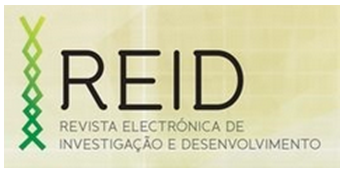TRANSIÇÃO DO ENSINO SECUNDÁRIO PARA O ENSINO SUPERIOR – SUGESTÃO PARA UMA ABORDAGEM PSICO-EPISTEMOLÓGICA
Arlindo Sitóe
DOI:
https://doi.org/10.70634/reid.v2i3.27Keywords:
Transição, Ensino Superior, Epistemologia pessoal, Crenças epistemológicas, Transition, Higher Education, Personal Epistemology, Epistemological beliefsAbstract
A passagem para o ensino superior é geralmente encarada como um marco muito importante, quer pelo próprio estudante, quer pela sociedade, em geral. Diferenças a nível institucional e factores de ordem pessoal fazem com que essa transição constitua um grande desafio para o estudante. O fraco conhecimento das matérias do próprio ensino secundário, sobretudo em Ciências e Matemática por parte de grande parte dos estudantes que ingressam no ensino superior tem sido visto como um dos mais preocupantes factores, facto que faz com que a transição seja não só desafiante mas até problemática. Programas de ‘nivelamento de conhecimentos’ têm sido adoptados em muitas universidades como forma de suprir esse deficit de conhecimentos. Reconhecendo a relevância mas também as limitações de tal tipo de programas, o presente artigo sugere que, adicionalmente, a questão do perfil epistemológico (i.e. as epistemologias pessoais) dos estudantes seja tida em consideração para uma análise cabal das questões subjacentes à da transição para o ensino superior. Especificamente, baseado num estudo realizado em África – Moçambique, o artigo sugere que a problemática da transição para o ensino superior seja objecto de uma abordagem psico-epistemológica.
Achieving higher education is usually seen as an important milestone by the student him/herself and by the society, at large. Institutional differences and personal factors turn the transition to be a huge challenge for the student. Feeble background knowledge of secondary school subjects, mainly in Sciences and Mathematics, has been identified as one of the worrying characteristics of most secondary school leavers, for whom the transition turns out to be rather problematic than just challenging. Thus, ‘knowledge upgrading’ programmes have been adopted in a number of universities, as to fill that knowledge deficit. Acknowledging the relevance as well as the limitations of such programmes, this article points out that students’ epistemological profiles (i.e. their personal epistemologies) should also be taken into account for a more comprehensive approach to the issues beneath the transition to higher education. Specifically, based on a study undertaken in Mozambique – Africa, the article advocates that a psycho-epistemological approach should be considered in addressing the matter of transition.

